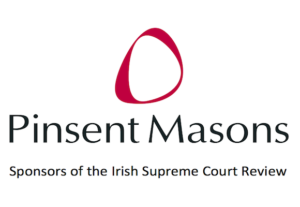Fair Use in South Africa; and the road not taken in Irish and Australian copyright reforms
 Copyright reform is under consideration in many jurisdictions, including Australia, Canada, New Zealand, Singapore, South Africa, and the United Kingdom. It has just been completed in the EU. In Ireland, the long-awaited Copyright and Other Intellectual Property Law Provisions Act 2019 (here and here) was signed by the President on 26 June 2019 last; in an unexplained delay, it took until 26 November 2019 for the Minister for Business, Enterprise and Innovation, Heather Humphries, to specify 2 December 2019 as the day on which most of the Act – eventually – came into force. In a future post, I will blog about the important changes made by the Act; in this post, I want to mention a road not taken. In May 2011, the Government established a Copyright Review Committee (CRC) to identify any areas of Irish copyright legislation that might create barriers to innovation and to make recommendations to resolve any problems identified.
Copyright reform is under consideration in many jurisdictions, including Australia, Canada, New Zealand, Singapore, South Africa, and the United Kingdom. It has just been completed in the EU. In Ireland, the long-awaited Copyright and Other Intellectual Property Law Provisions Act 2019 (here and here) was signed by the President on 26 June 2019 last; in an unexplained delay, it took until 26 November 2019 for the Minister for Business, Enterprise and Innovation, Heather Humphries, to specify 2 December 2019 as the day on which most of the Act – eventually – came into force. In a future post, I will blog about the important changes made by the Act; in this post, I want to mention a road not taken. In May 2011, the Government established a Copyright Review Committee (CRC) to identify any areas of Irish copyright legislation that might create barriers to innovation and to make recommendations to resolve any problems identified.
In particular, one of the terms of reference required the CRC to “examine the US style ‘fair use’ doctrine to see if it would be appropriate in an Irish/EU context”. It was a controversial topic, with powerful views expressed both for and against the exception.…

 Pictured left is 1 Laveta Place, Nyack, New York, NY 10960, a charming riverfront home at the end of a pretty tree-lined cul de sac in an historic village north of New York city. It has recently been put up for sale (
Pictured left is 1 Laveta Place, Nyack, New York, NY 10960, a charming riverfront home at the end of a pretty tree-lined cul de sac in an historic village north of New York city. It has recently been put up for sale (



